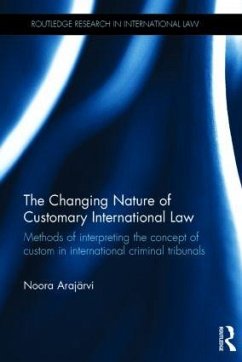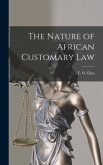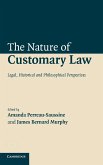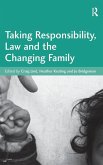This book examines the evolution of customary international law (CIL) as a source of international law. Using the International Criminal Tribunal for the former Yugoslavia (ICTY) as a key case study, the book explores the importance of CIL in the development of international criminal law and focuses on the ways in which international criminal tribunals can be said to change the ways in which CIL is formed and identified. In doing so, the book surveys the process and substance of CIL, as well as the problematic distinction between the elements of state practice and opinio juris. By applying an inclusive¿positivist approach, Noora Arajärvi analyses the methodologies of identification of CIL in selected cases of the ICTY, and their normative foundations. Through examination of the case-law and the reasoning of courts and tribunals, Arajärvi demonstrates to what extent the court's chosen method of identification of CIL affects the process of custom formation and the resulting system of norms in general. The book will be of great value to researchers and scholars of international law, international relations, and practitioners with interests in customary international law.
Hinweis: Dieser Artikel kann nur an eine deutsche Lieferadresse ausgeliefert werden.
Hinweis: Dieser Artikel kann nur an eine deutsche Lieferadresse ausgeliefert werden.








